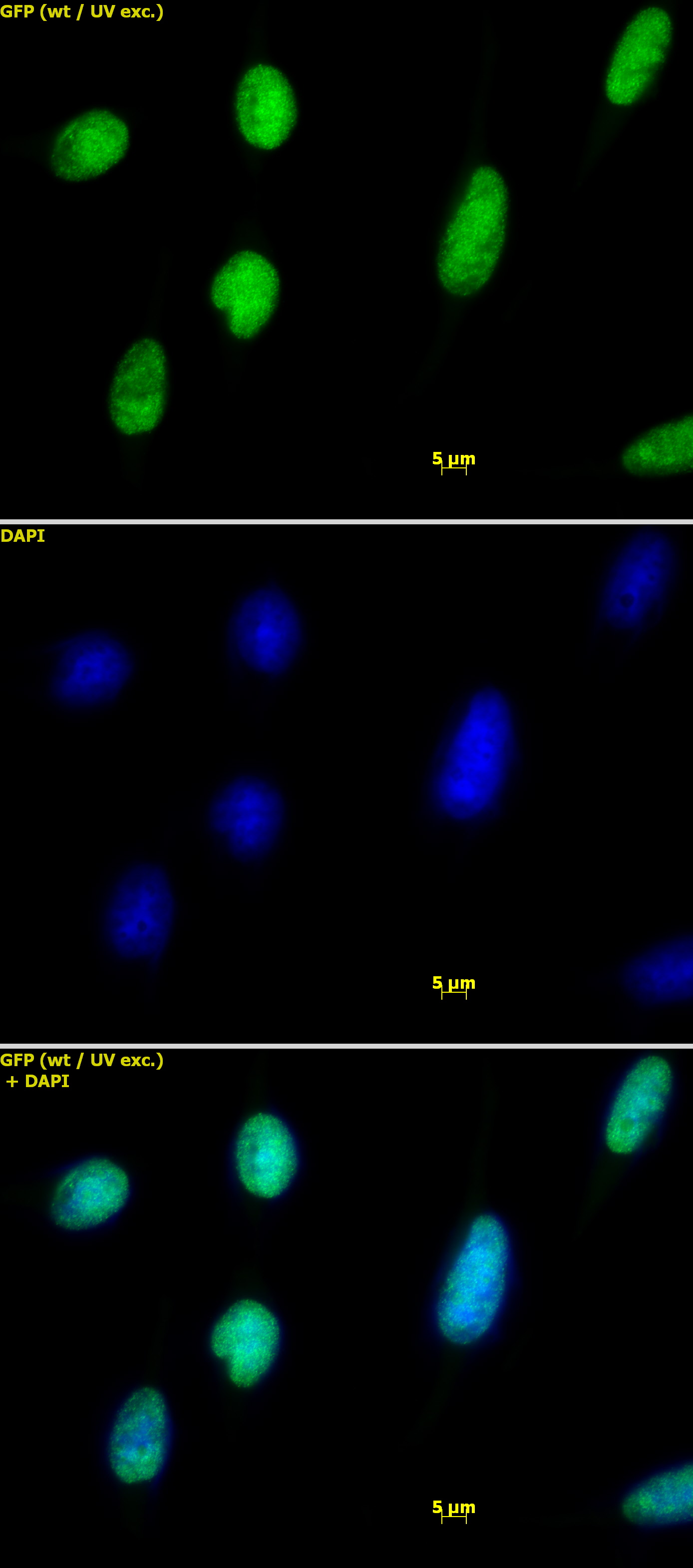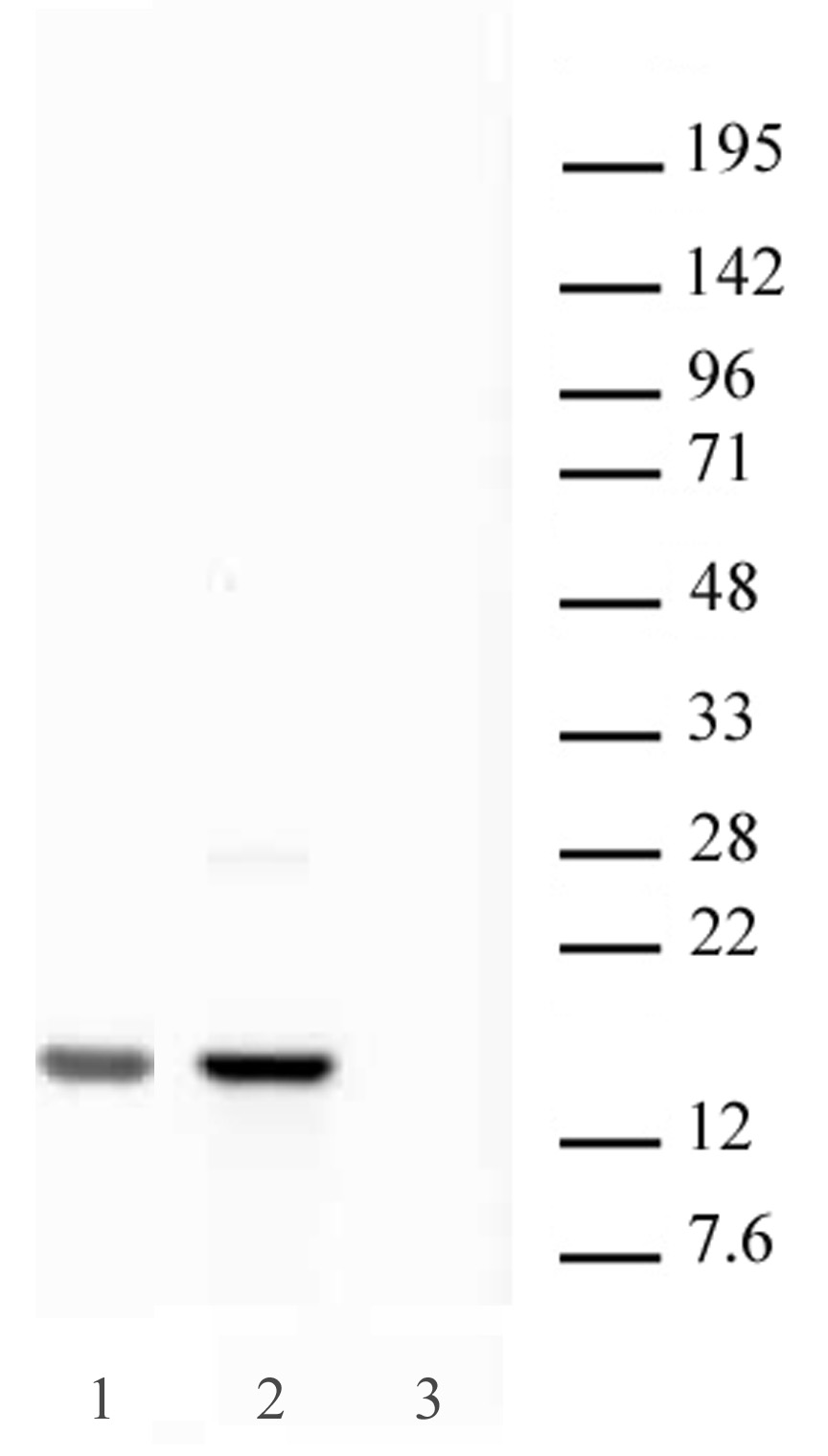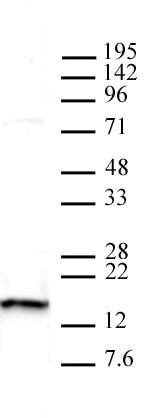Histone H2A.X antibody (pAb) (H2AX)
Host / Isotype
Rabbit / IgG
Reactivity
Human
Applications
ChIP, ICC, IF, WB
Cat No : 39689,39690 39689
Synonyms
Validation Data Gallery
Product Information
| Tested Applications |
ChIP, ICC, IF, WB
Applications Validated by Active Motif: ICC/IF: 1:500 - 1:1,000 dilution WB*: 1:500 - 1:2,000 dilution *Note: many chromatin-bound proteins are not soluble in a low salt nuclear extract and fractionate to the pellet. Therefore, we recommend a High Salt / Sonication Protocol when preparing nuclear extracts for Western blot. |
| Tested Reactivity | Human |
| Host / Isotype | Rabbit / IgG |
| Class | Polyclonal |
| Type | Antibody |
| Immunogen | This Histone H2AX antibody was raised against a peptide derived from the C-terminus of human histone H2AX. |
| Full Name | Histone H2A.X antibody (pAb) (H2AX) |
| Synonyms | histone H2A.X, histone H2AX, histone, H2A.X, H2AX, histone-H2AX, histone-H2A.X, histoneH2AX, histoneH2A.X, gammaH2AX, gammah2A.X, gamma-h2ax, gamma-h2a.x, gamma h2ax, gamma h2A.X, pAb, polyclonal, H2AX P-S139, H2A histone family member X, Histone H2 Phospho Ser139, Histone H2 Phosphorylated Ser139, Histone H2 Phosphorylated Serine 139, Histone H2 P-Ser139, Histone H2 Phospho S139, H2 Phospho Ser139, H2 P-Ser139, antibody, antibodies, hisvar, sample |
| Molecular weight | 15 kDa |
| GenBank accession number | NP_002096 |
| RRID | AB_2728764 |
| Purification Method | Affinity Purified |
| Buffer | Purified IgG in 70 mM Tris (pH 8), 105 mM NaCl, 31 mM glycine, 0.07 mM EDTA, 30% glycerol and 0.035% sodium azide. Sodium azide is highly toxic. |
| Storage | Some products may be shipped at room temperature. This will not affect their stability or performance. Avoid repeated freeze/thaw cycles by aliquoting items into single-use fractions for storage at -20°C for up to 2 years. Keep all reagents on ice when not in storage. |
Background Information
Histone H2AX (H2AX, H2A histone family member X) replaces conventional H2A in a subset of nucleosomes. Nucleosomes wrap and compact DNA into chromatin, limiting DNA accessibility to the cellular machineries that require DNA as a template. Histones thereby play a central role in transcriptional regulation, DNA repair, DNA replication and chromosomal stability. DNA accessibility is regulated via a complex set of post-translational modifications of histones, also called the histone code, and nucleosome remodeling. Histone H2AX is required for checkpoint-mediated arrest of cell cycle progression in response to low doses of ionizing radiation, and for efficient repair of DNA double-strand breaks (DSBs), specifically when modified by C-terminal phosphorylation.



